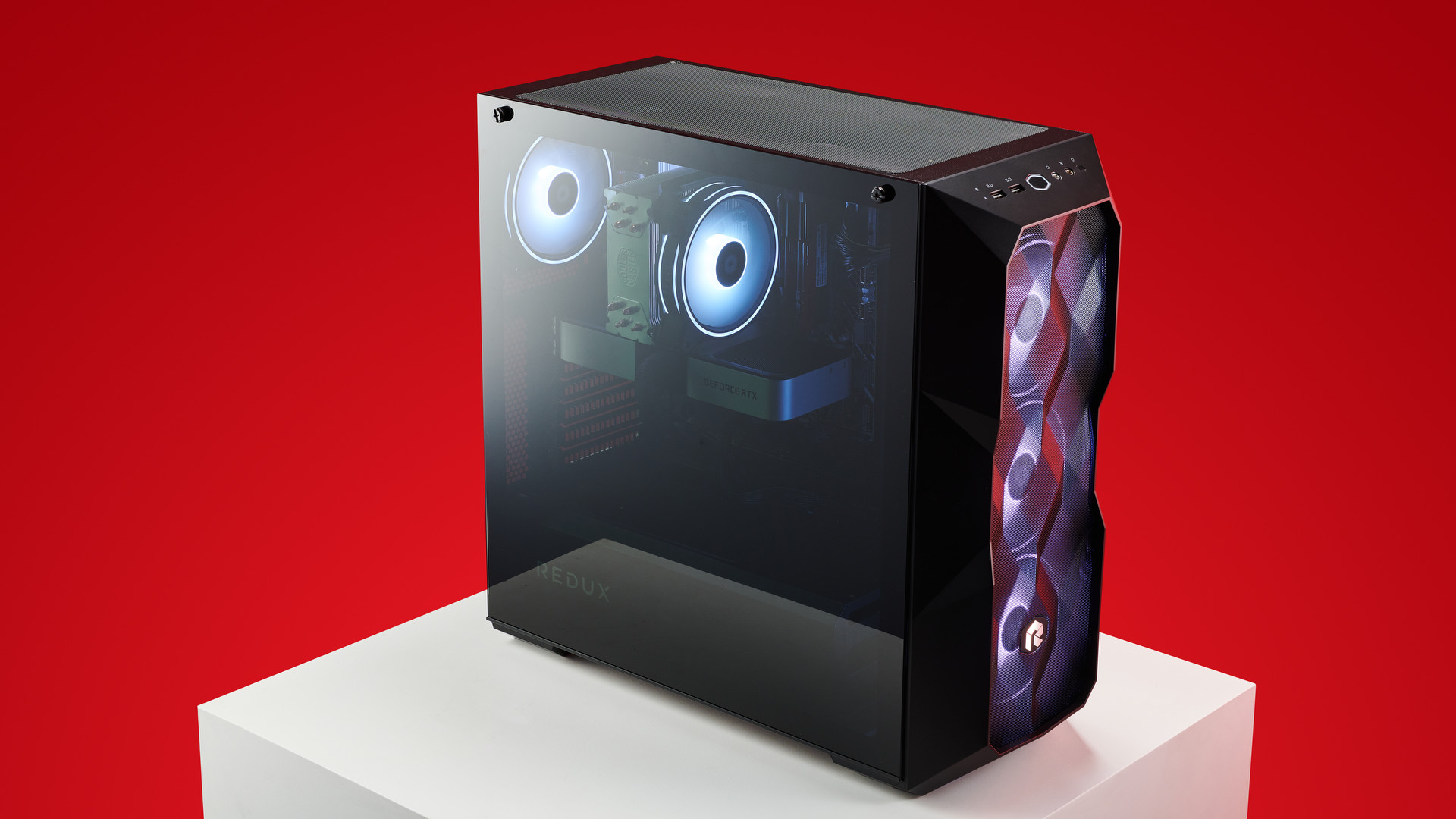Our Verdict
The name may be basic, but this is a quality build that focuses on gaming first and foremost. Shame a bit more attention didn't go into the storage though.
For
- Good part selection and build
- Great case airflow
- Strong 1440p gaming performance
Against
- Unimpressive SSD
- No USB Type-C ports
PC Gamer's got your back
Build Redux sets out to make buying a new gaming PC a much easier affair than normal. The traditional frustrations of wading through nonsense names trying to work out whether they'll handle your game of choice will be familiar to any PC gamer. This system builder offers three main gaming PCs to choose from and each one can be configured slightly further by throwing a bit more cash at the system if you do want to dig into the details.
You can also select which games you want to play, and it'll recommend a system for you. There isn't an exhaustive list of games to pick from here, but enough to give you an idea of what the overall performance might be.
The most affordable of these is simply labelled 'Good', which starts at $1,305 with a $99 build fee bringing it up to $1,404 for the whole system. The 'Better' machine will set you back $1,878, while the 'Best' has a $2,228 starting price point and is built around an Intel Core i7 12700F and an Nvidia RTX 3080.
If you're feeling flush, then a fourth build has recently appeared, this 'Ultimate' build will net you an RTX 4090 machine for $3,644. Gulp.
CPU: Intel Core i5 12400F
GPU: Nvidia GeForce RTX 3060 Ti FE
RAM: 16GB DDR4-3200
Motherboard: Asus B660
Storage: 500GB Kingston NV1
Front I/O: 2x USB 3.0 Type-A, headphone jack, mic in,
Rear I/O: 2x USB 3.2 Gen 2, 4x USB 2.0, 1x PS/2, 3x audio
Connectivity: Wi-Fi 5, Bluetooth, Ethernet
PSU: 700W ATX 80 Plus Gold
Case: Cooler Master TD500 RGB
OS: Windows 11 Home
Warranty: 2 Years parts and labor
Price: $1,504
Back to reality and the machine Build Redux sent for review is based on the 'Good' build, but with one important change—instead of featuring the default RTX 3060, the company has instead upgraded this to an Nvidia GeForce RTX 3060 Ti. This is a smart move, as this offers far better performance for your hard-earned cash and should see the machine stay relevant for that much longer. Even ray tracing is possible here, especially if the game in question has support for DLSS 2.
This upgrade means you're looking at a system price of $1,504, which also nets you an Intel Core i5 12400F, 16GB of Patriot DDR4-3200, and a Kingston NV1 500GB NVMe SSD, all in a big Cooler Master TD500 case festooned with RGB fans. It ain't subtle, but it runs cool and never gets too loud, even when under serious load, thanks in no small part to the mesh-fronted case not blocking airflow with any silly glass panel. It's a real shame there are no USB Type-C ports though.
Unfortunately, shipping the machine across the Atlantic for testing didn't go entirely smoothly, and the graphics card was damaged on the way. Build Redux used foam packing inside the machine to try and prevent such horrors, but it wasn't quite as snug as we would have liked, and there was no bracing mount included to make sure it didn't shift in transit.
Booting resulted in a flickery screen and attempting to game caused a full system crash. Clearly not happy. Reseating the card did momentarily appear to rectify things, but only for it to crash out once any games started running.
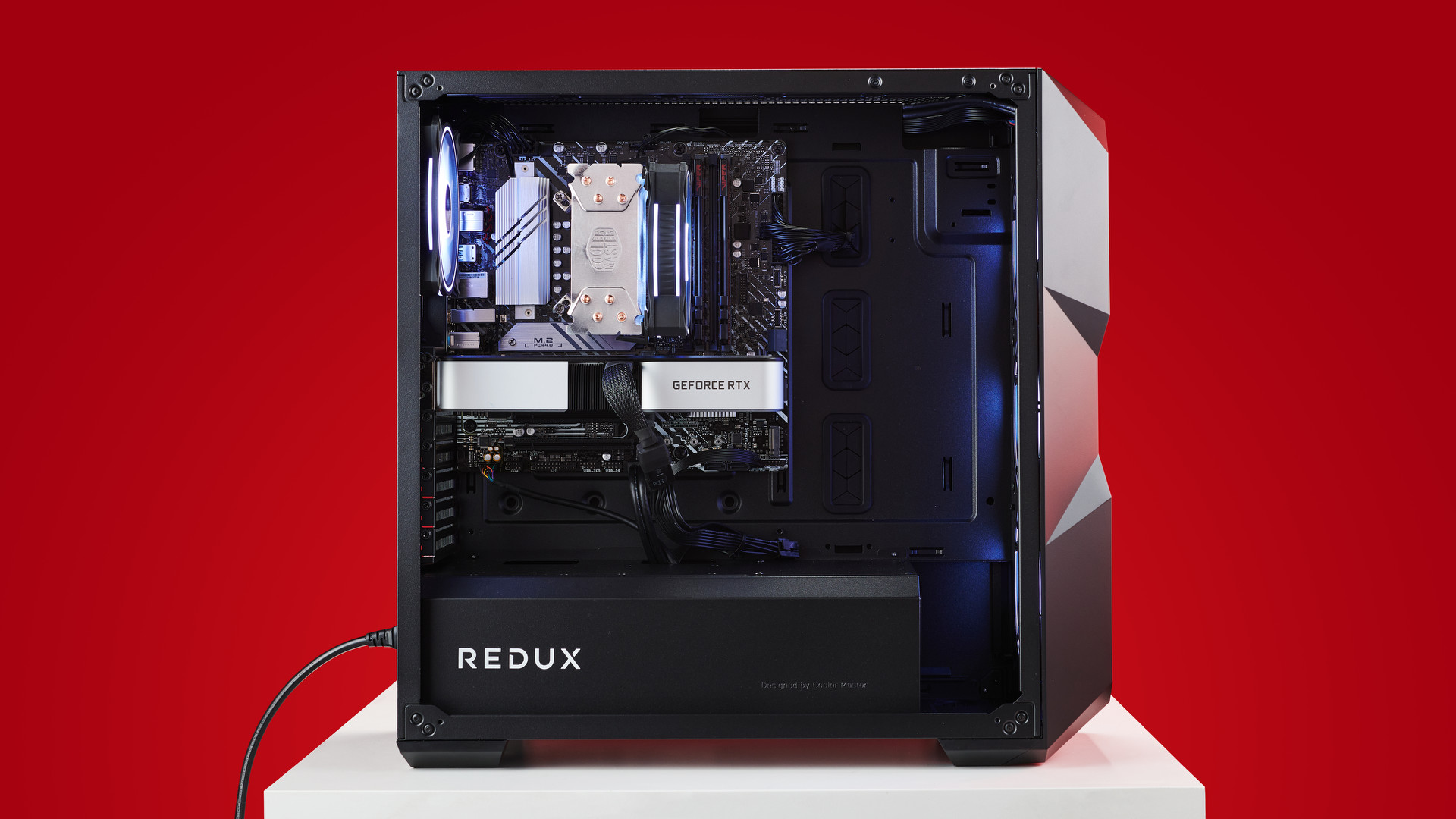
This is a well-thought-out system that packs a punch where it matters most.
Luckily we had an identical Nvidia GeForce RTX 3060 Ti FE on hand so we could put the machine through its paces, and there was no obvious damage elsewhere. It's also worth noting that shipping across the US shouldn't be quite so stressful, although it is a big ol' place, and couriers aren't renowned for being particularly careful with big boxes. More packaging would be preferable basically, even if we were a little unlucky here.
System performance
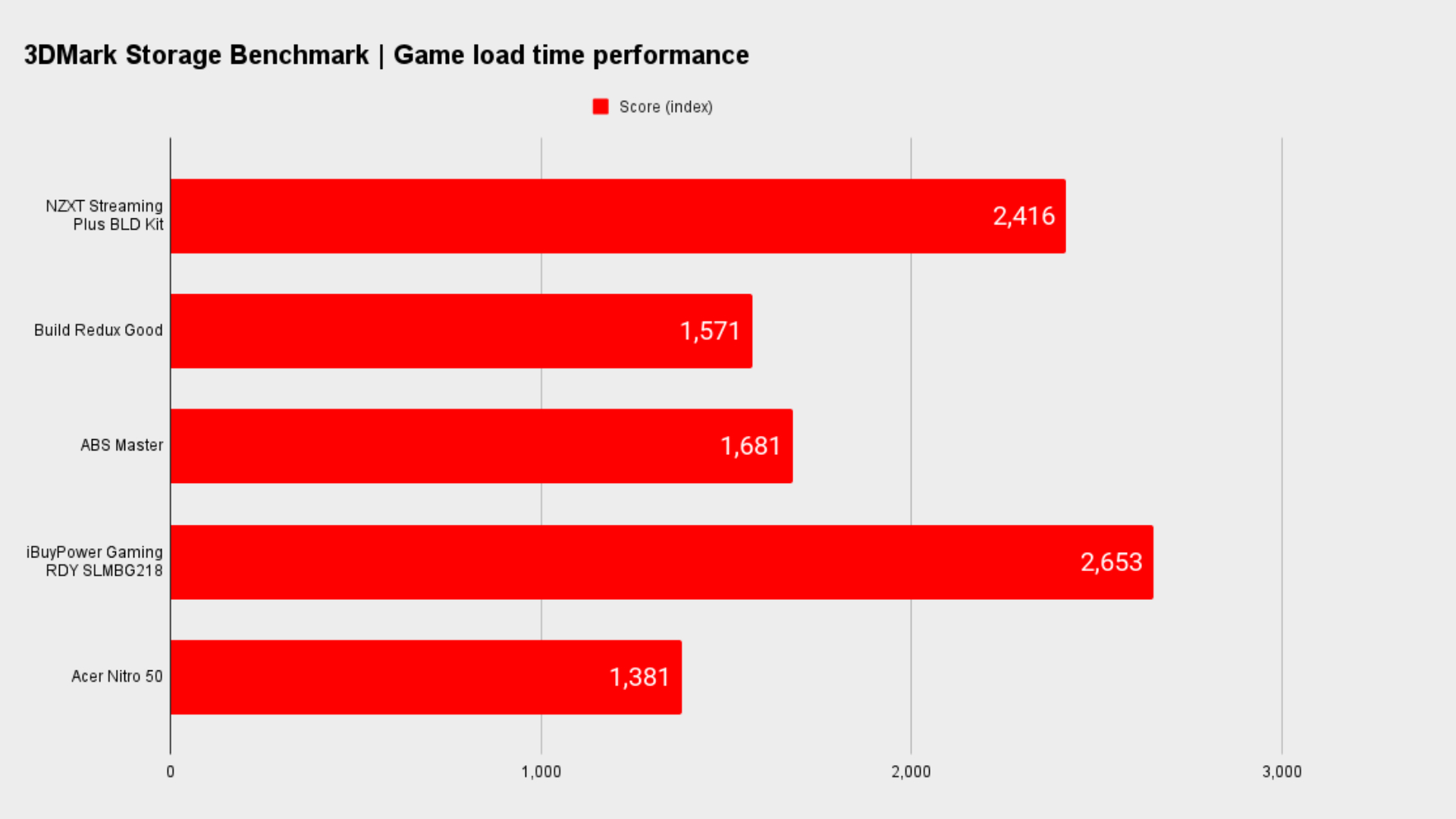
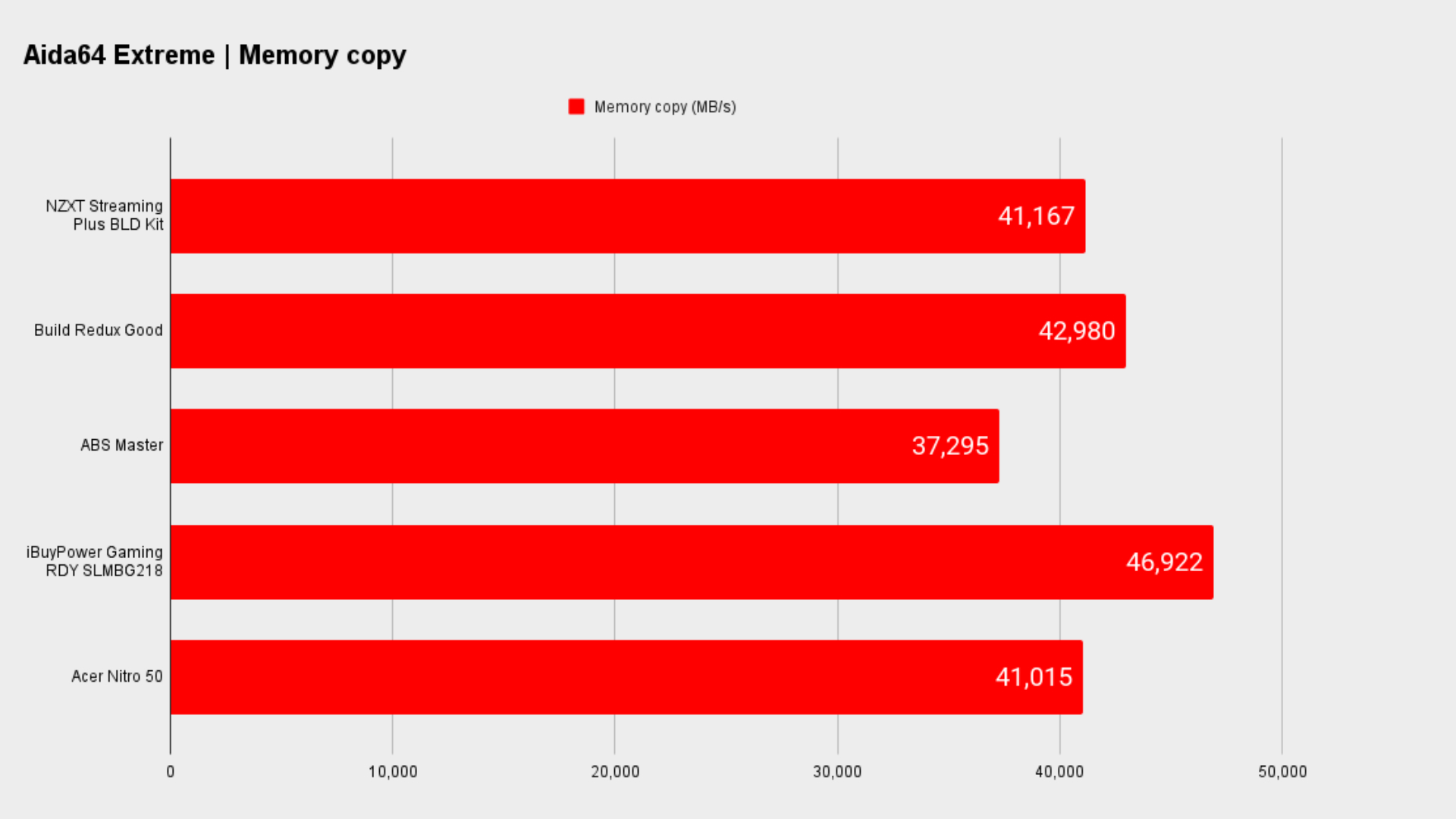
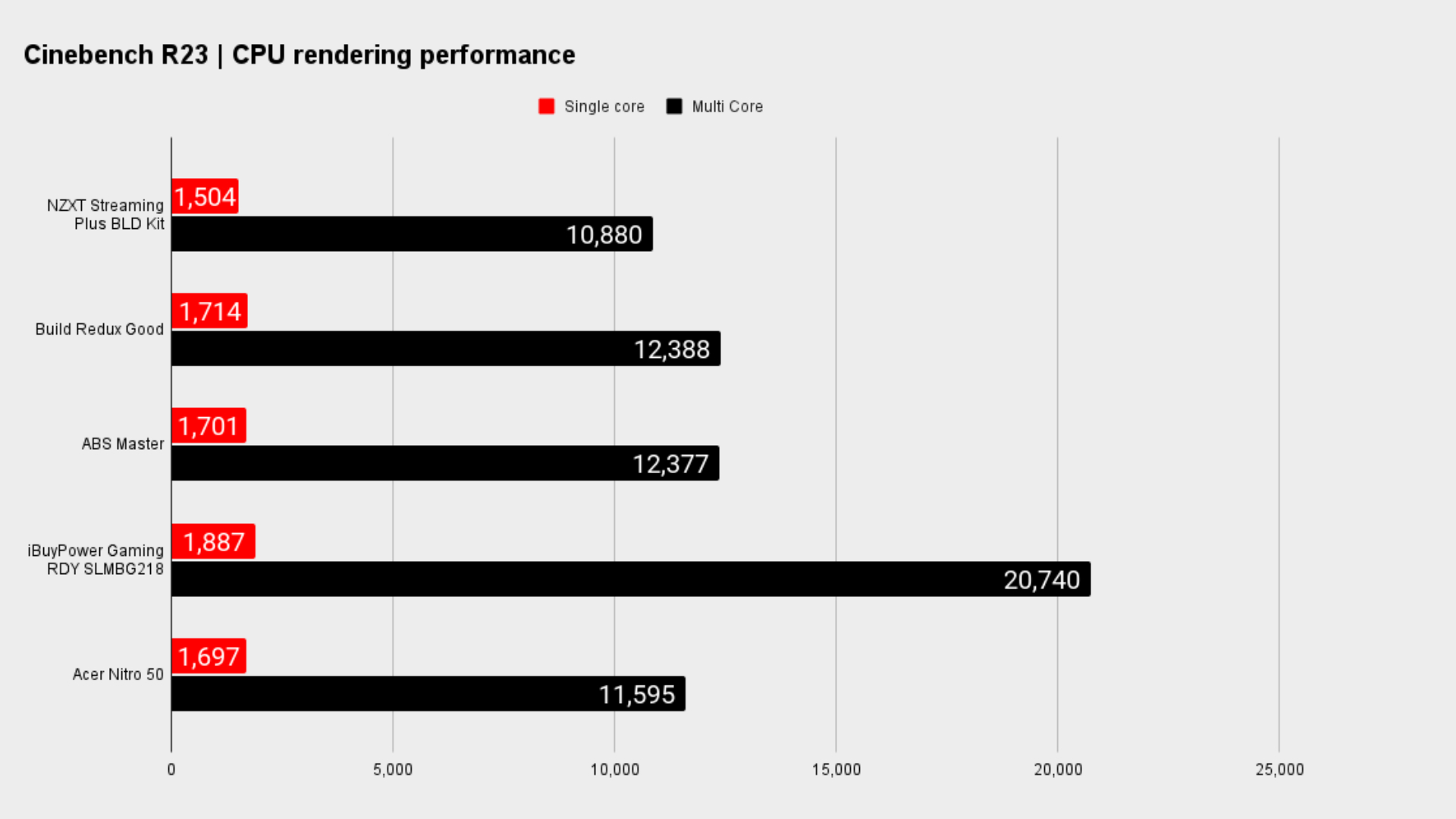
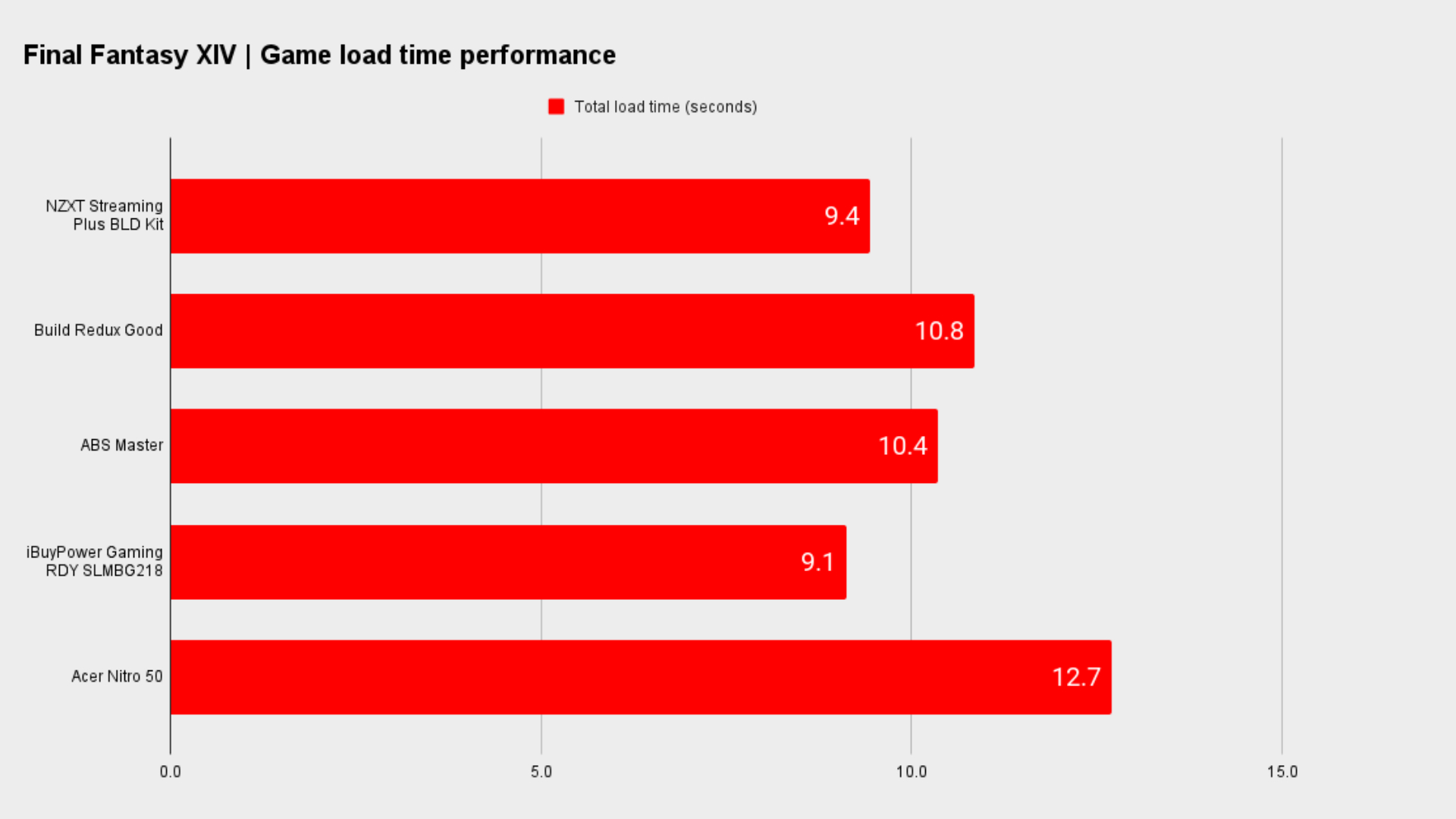
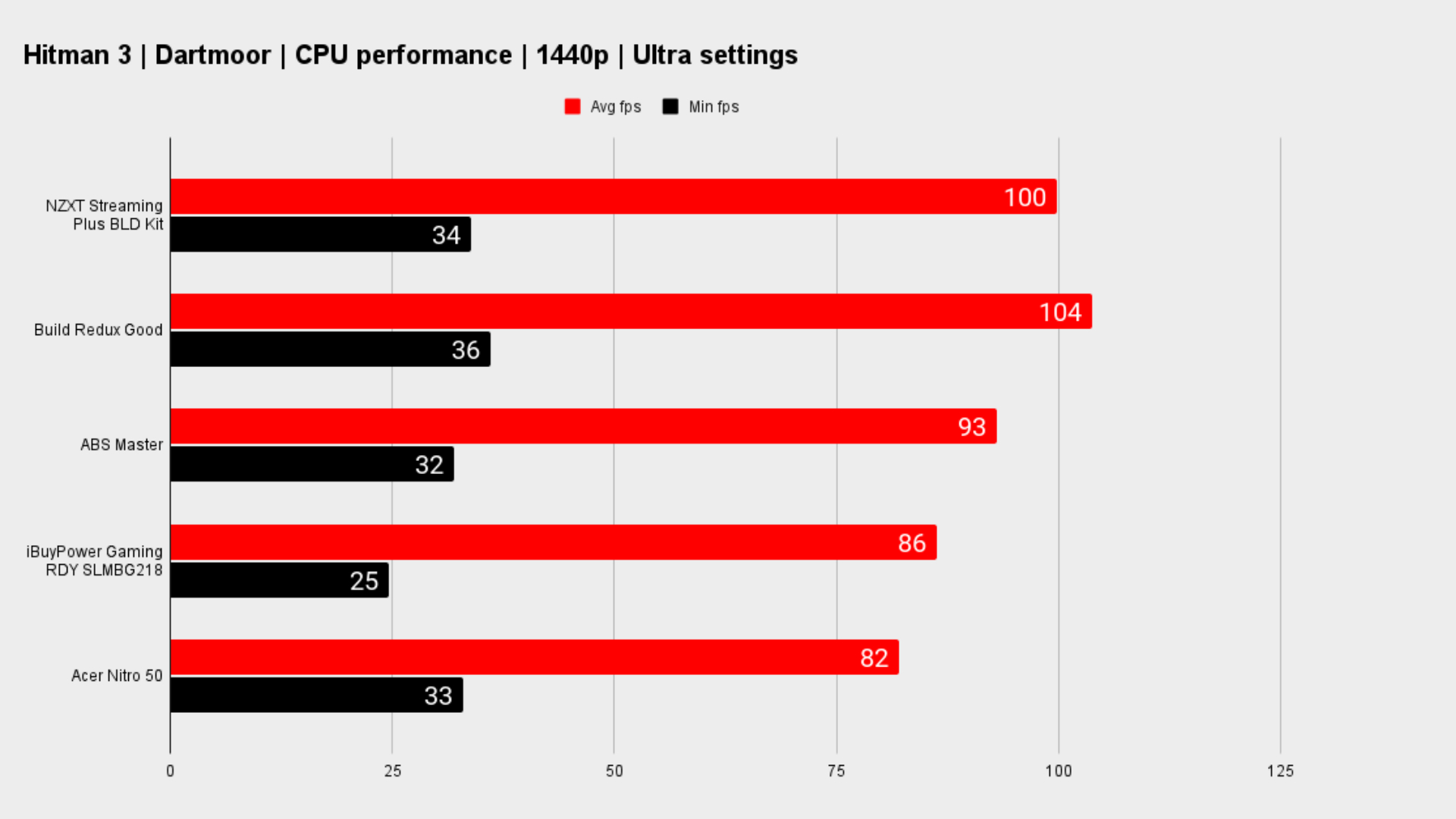
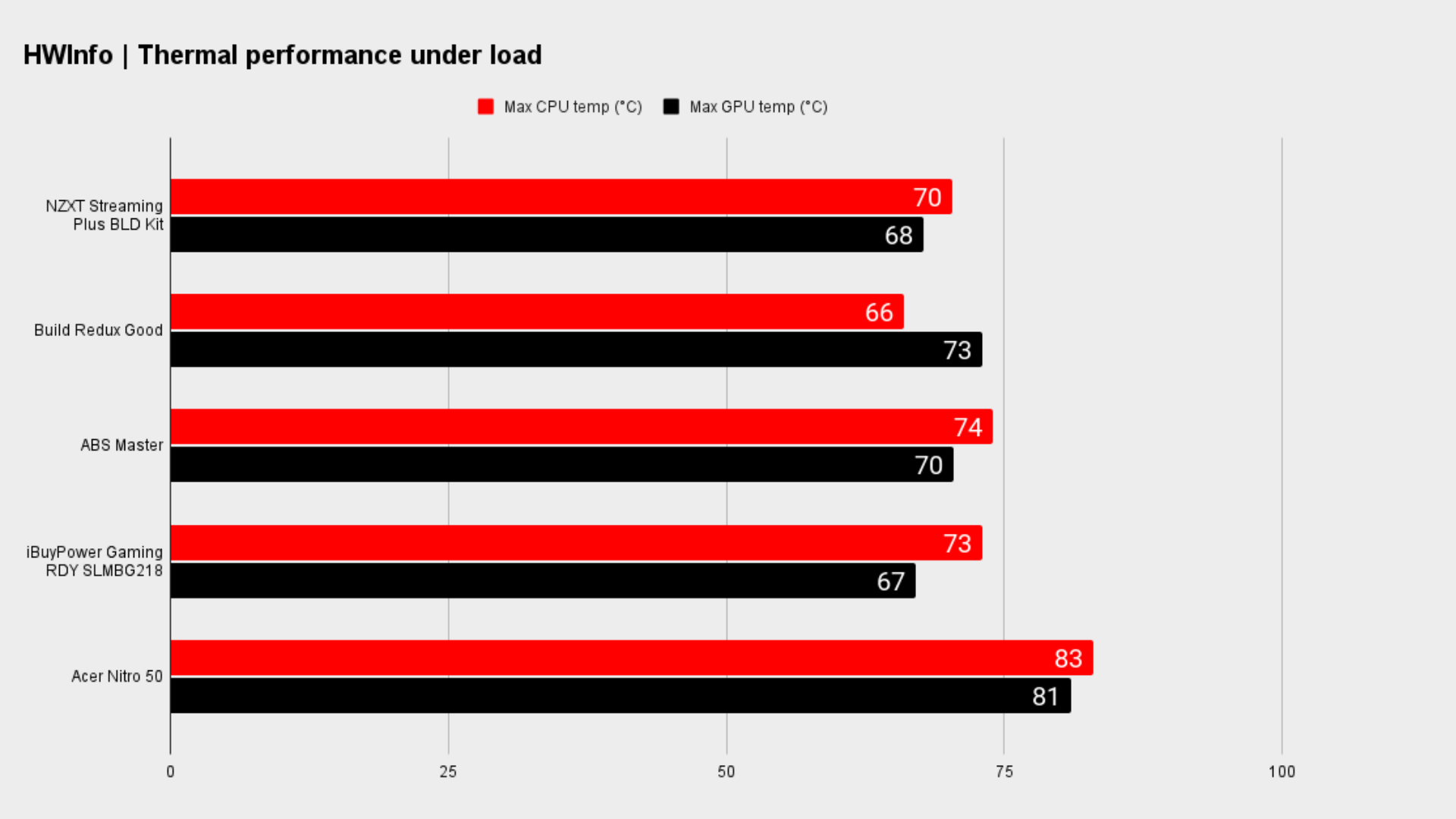
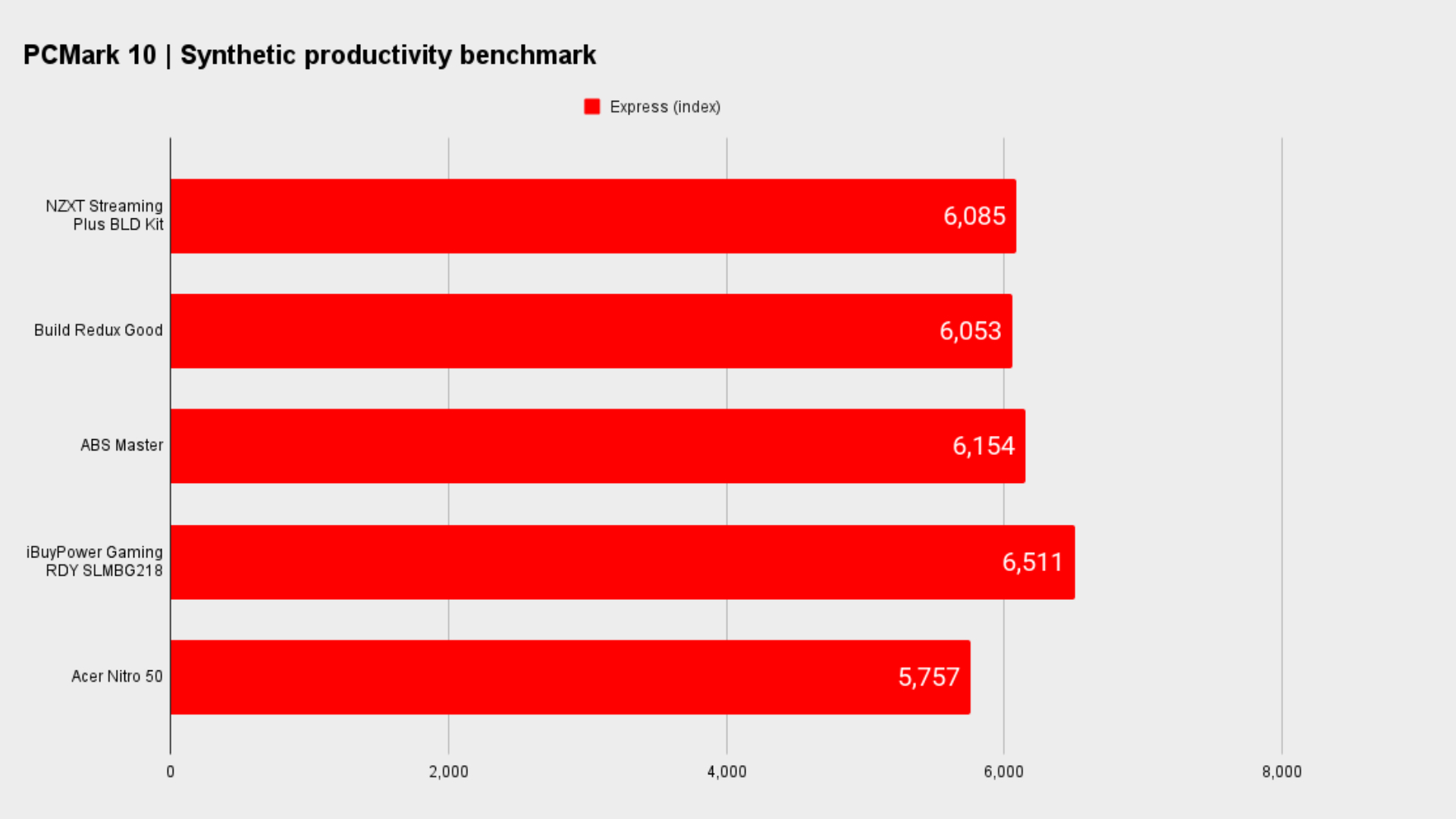
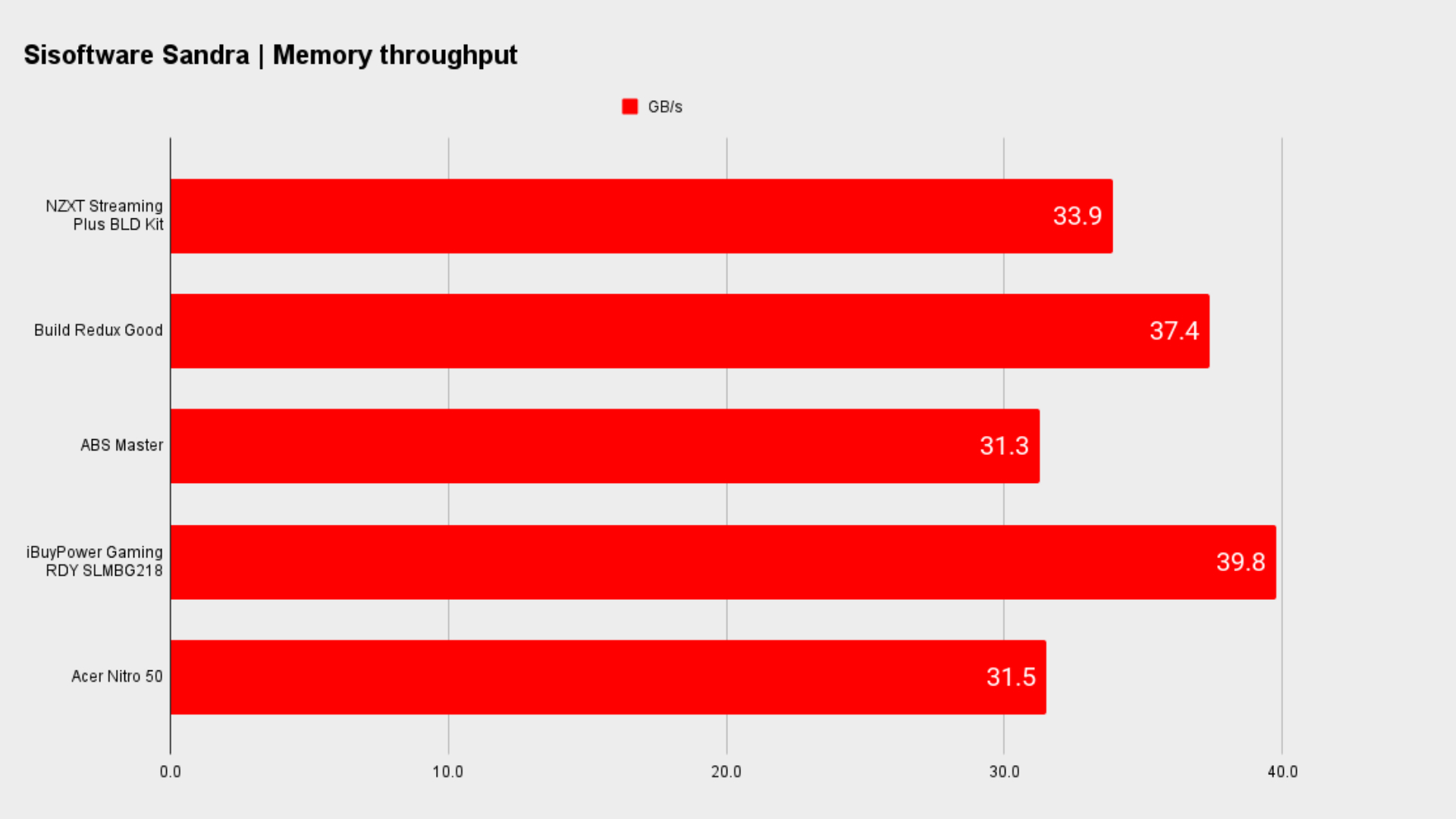
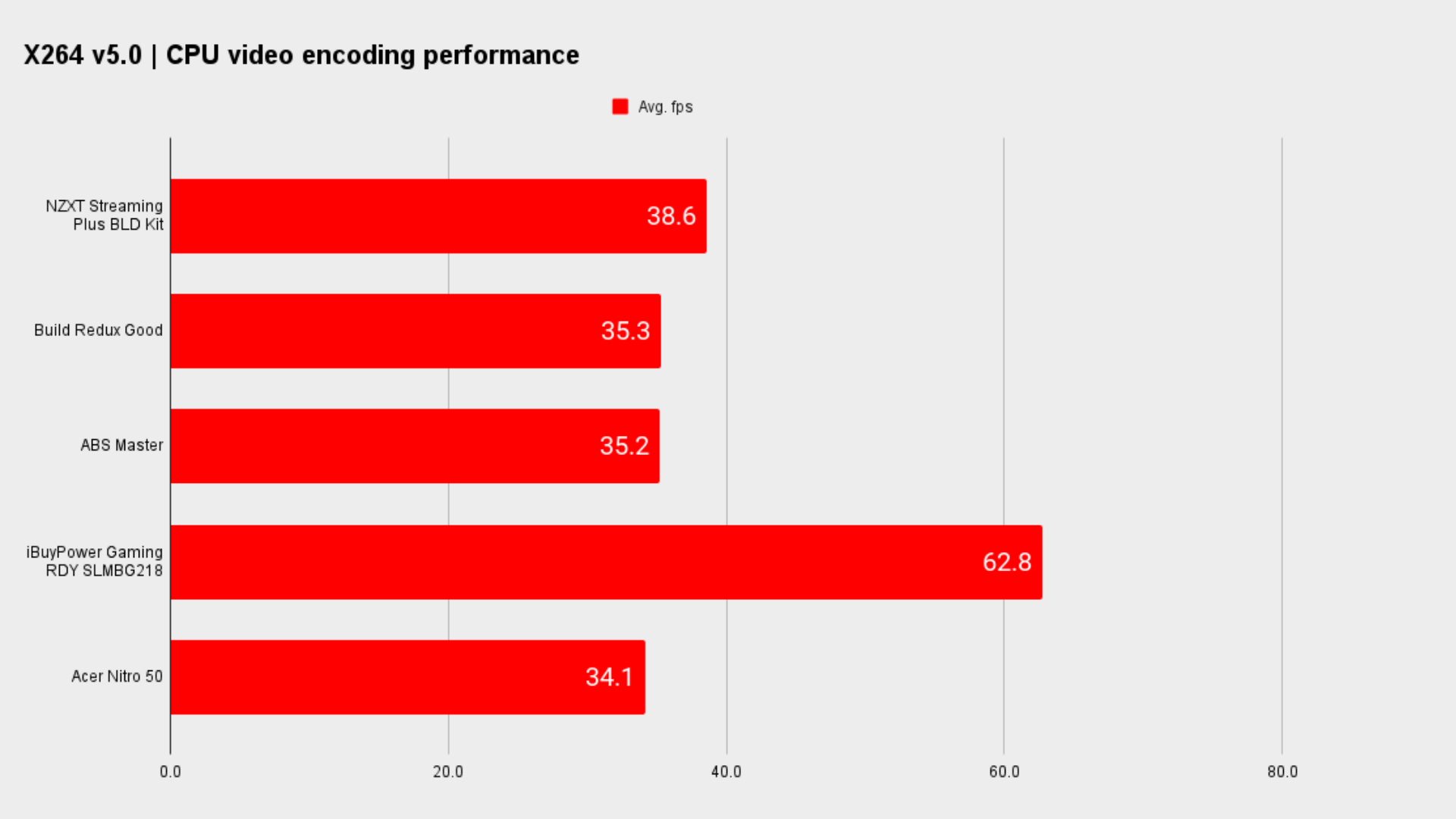
There's nothing too surprising here in terms of the system performance benchmarks, apart from the SSD performance. The 3DMark Storage Benchmark simulate game loading, and here the Build Redux 'Good' doesn't exactly impress—and that's when comparing against the not-exactly-stunning SN570 that can be found in the similarly-priced NZXT machine and iBuyPower rigs.
The Core i5 12400F is a capable enough CPU, managing reasonable results in Cinebench R23 and the X264 video encoding benchmark. If you want more raw CPU grunt, you're going to want to upgrade to a Core i7, as found in the iBuyPower machine, but that would need compromises elsewhere.
Gaming benchmarks
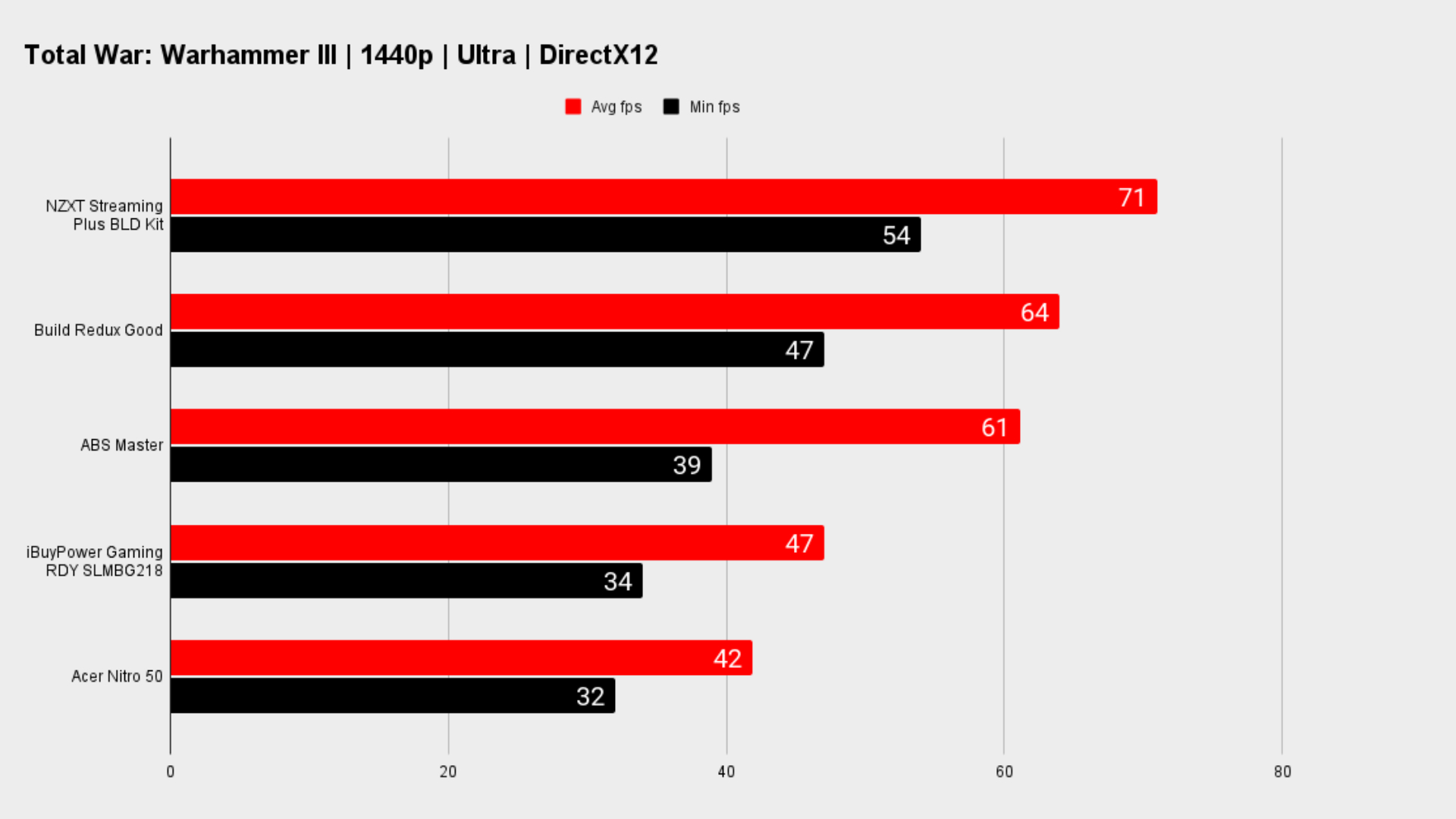
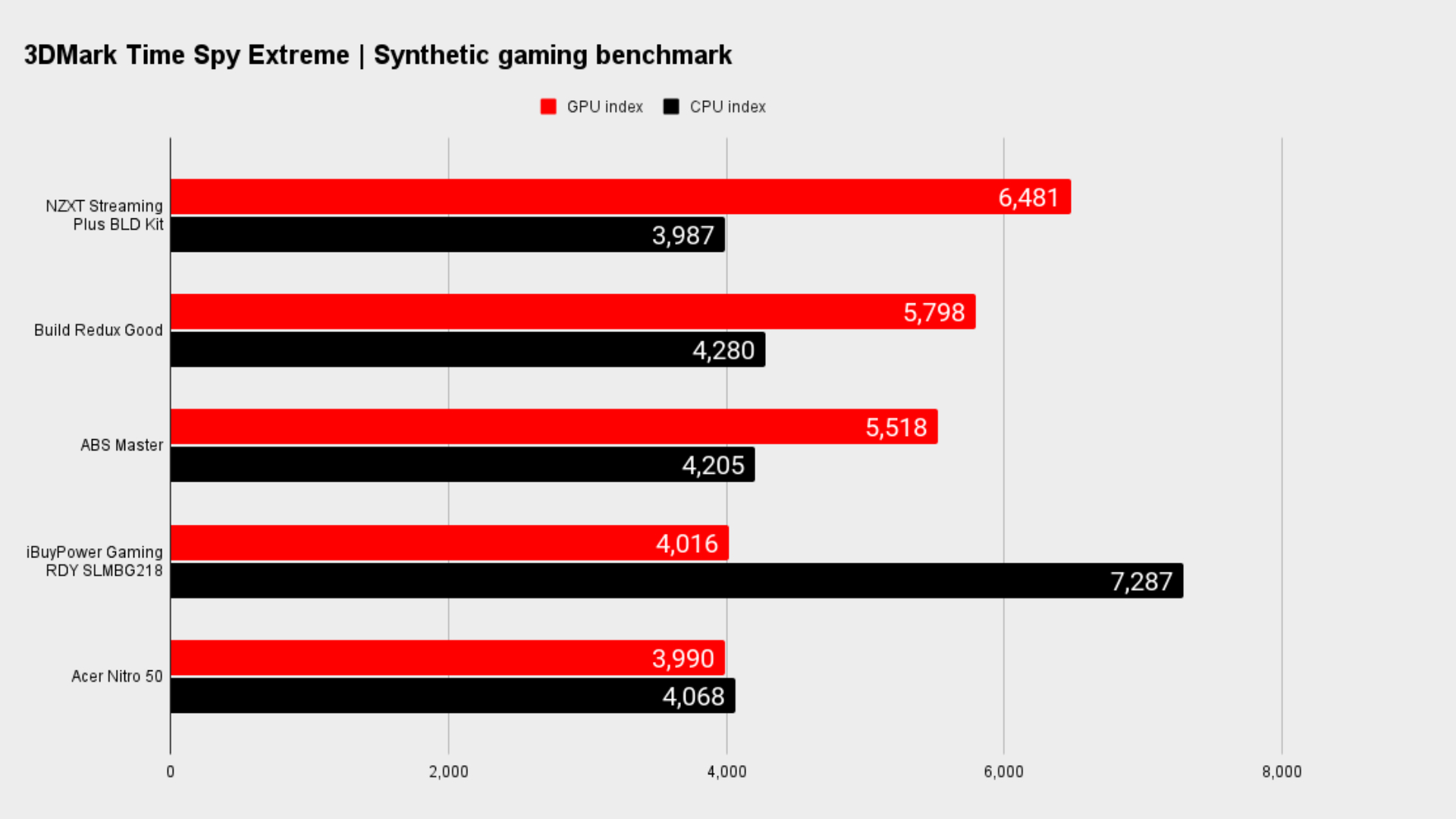
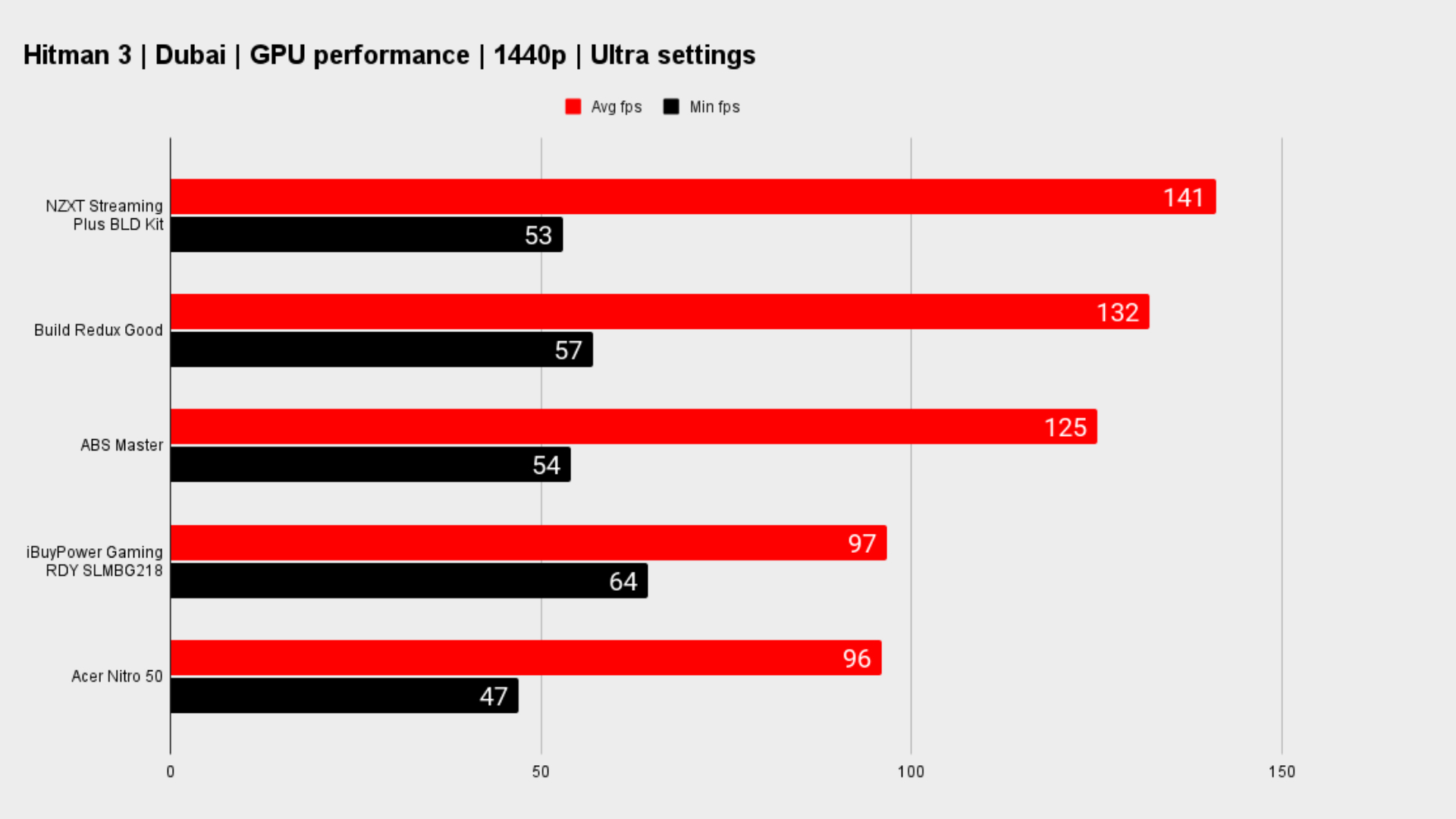
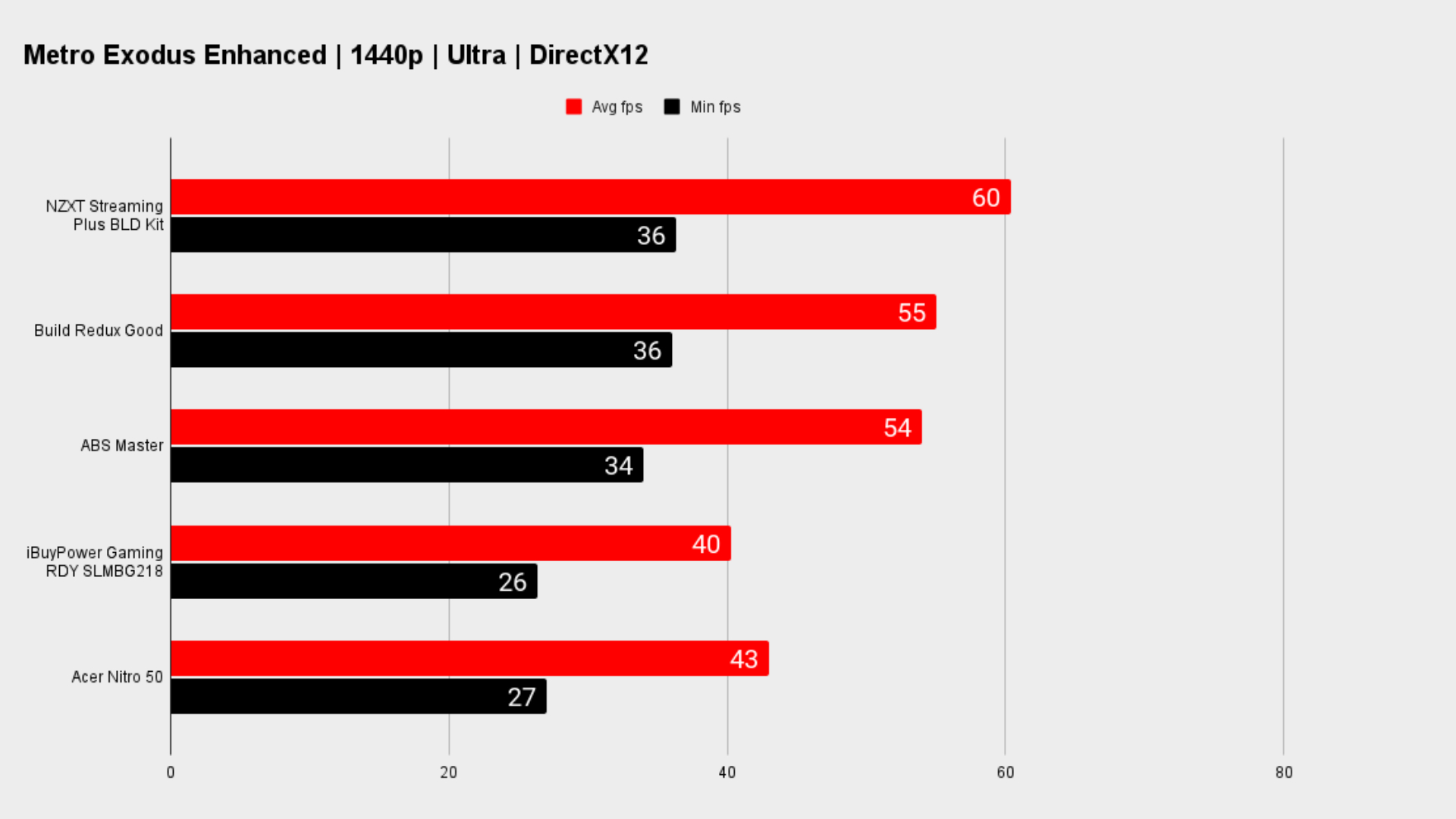
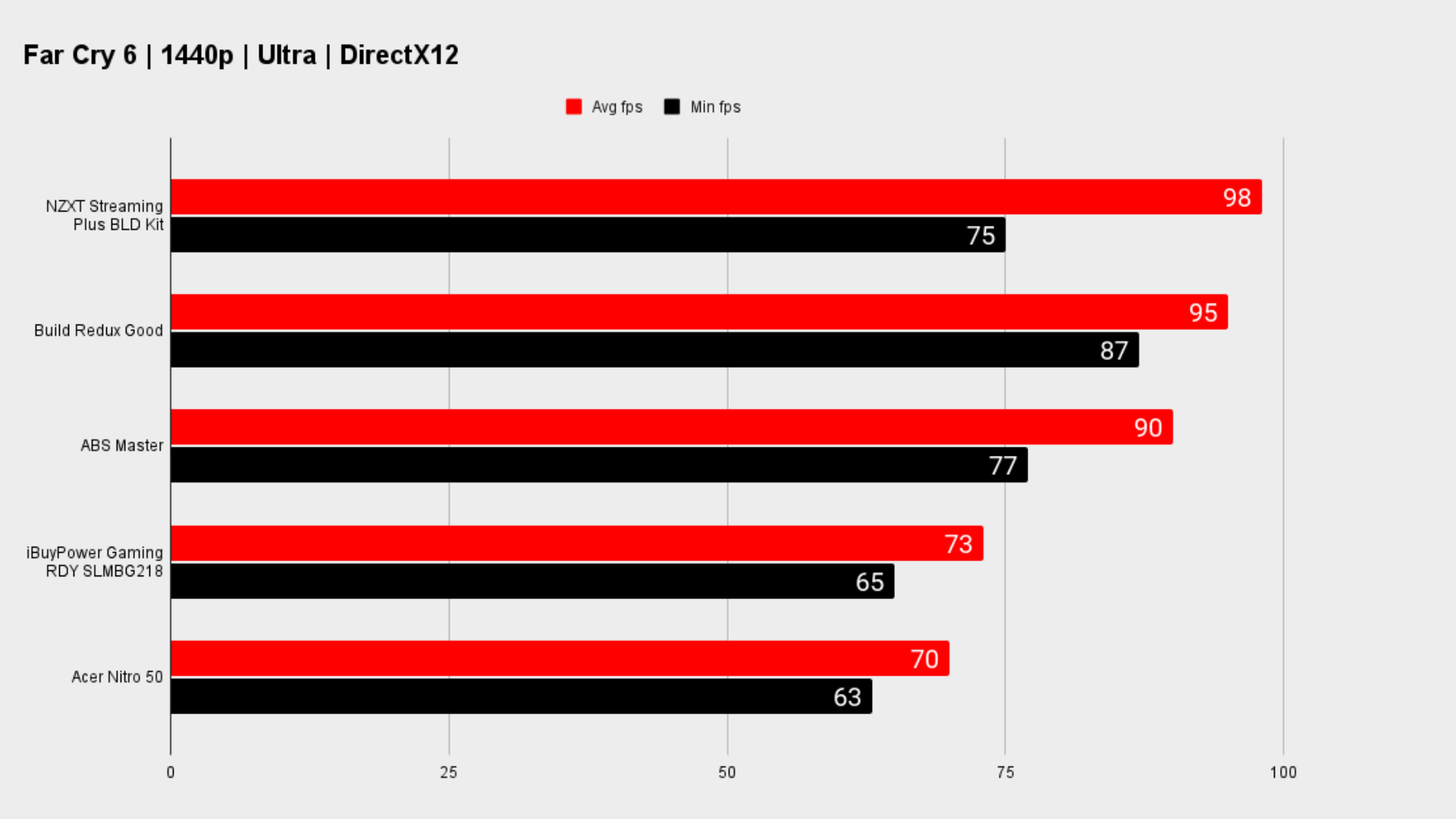
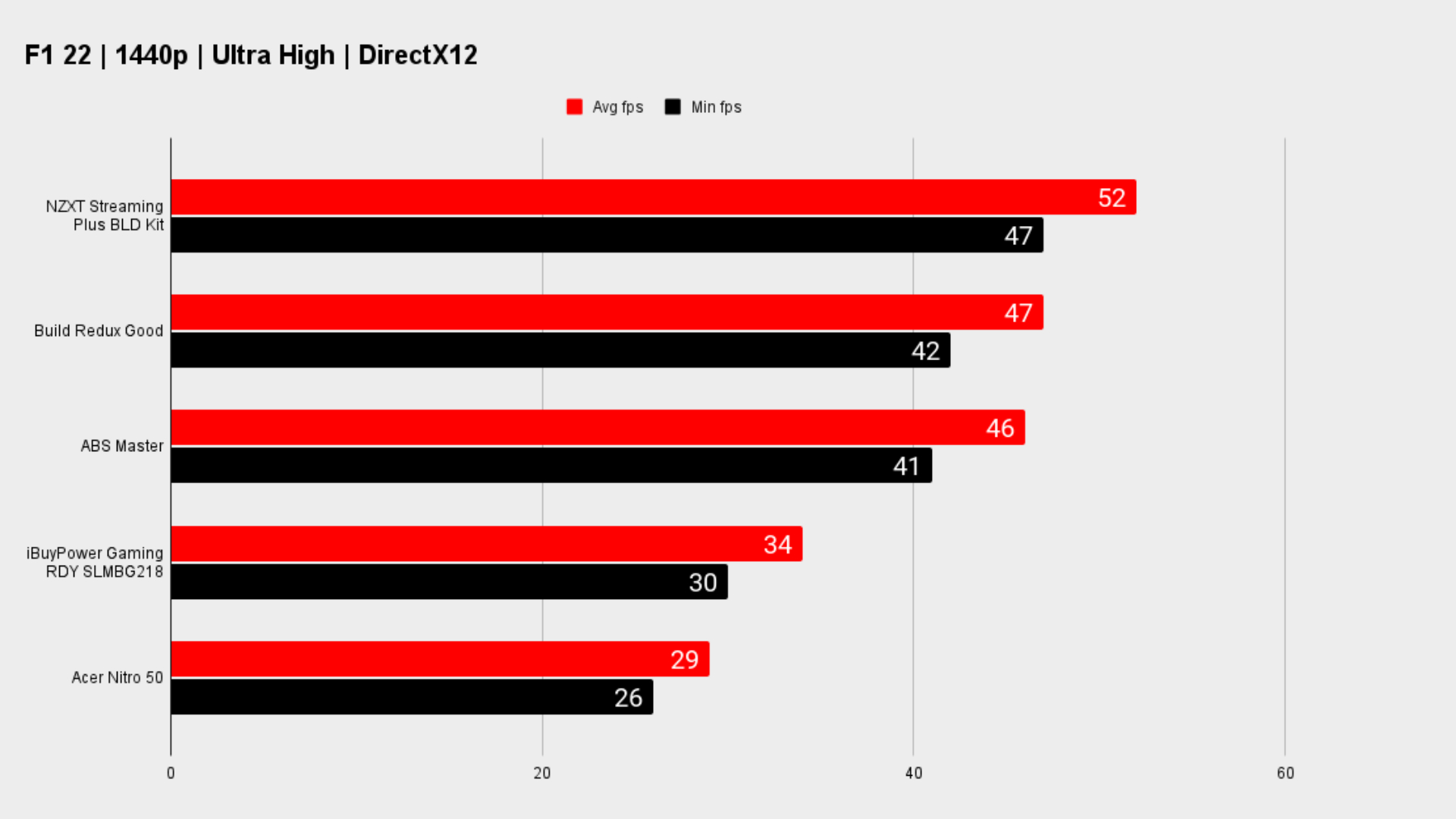
The good news is that the Build Redux Good is a decent machine when it comes to gaming. The key component here is the RTX 3060 Ti, which can handle anything you can throw at it at 1080p, and as can be seen from the benchmarks is capable enough at 1440p too. There's not a lot between this machine and the ABS Master, which packs the same GPU.
Even in the likes of the ray tracing heavy Metro Exodus Enhanced, you're looking at 55fps at 1440p, and that's at the ultra setting. You shouldn't have to compromise much if at all, to hit smooth frame rates in the very latest games.
The only slight fly in the ointment here is that the NZXT Streaming Plus BLD Kit rolls in at the same price point but comes with the RTX 3070. That's simply a more capable card, which can be seen in the frame rates, although in some cases the difference is slight—you're looking at just 3fps difference in Far Cry 6. Most games show a bigger delta though.
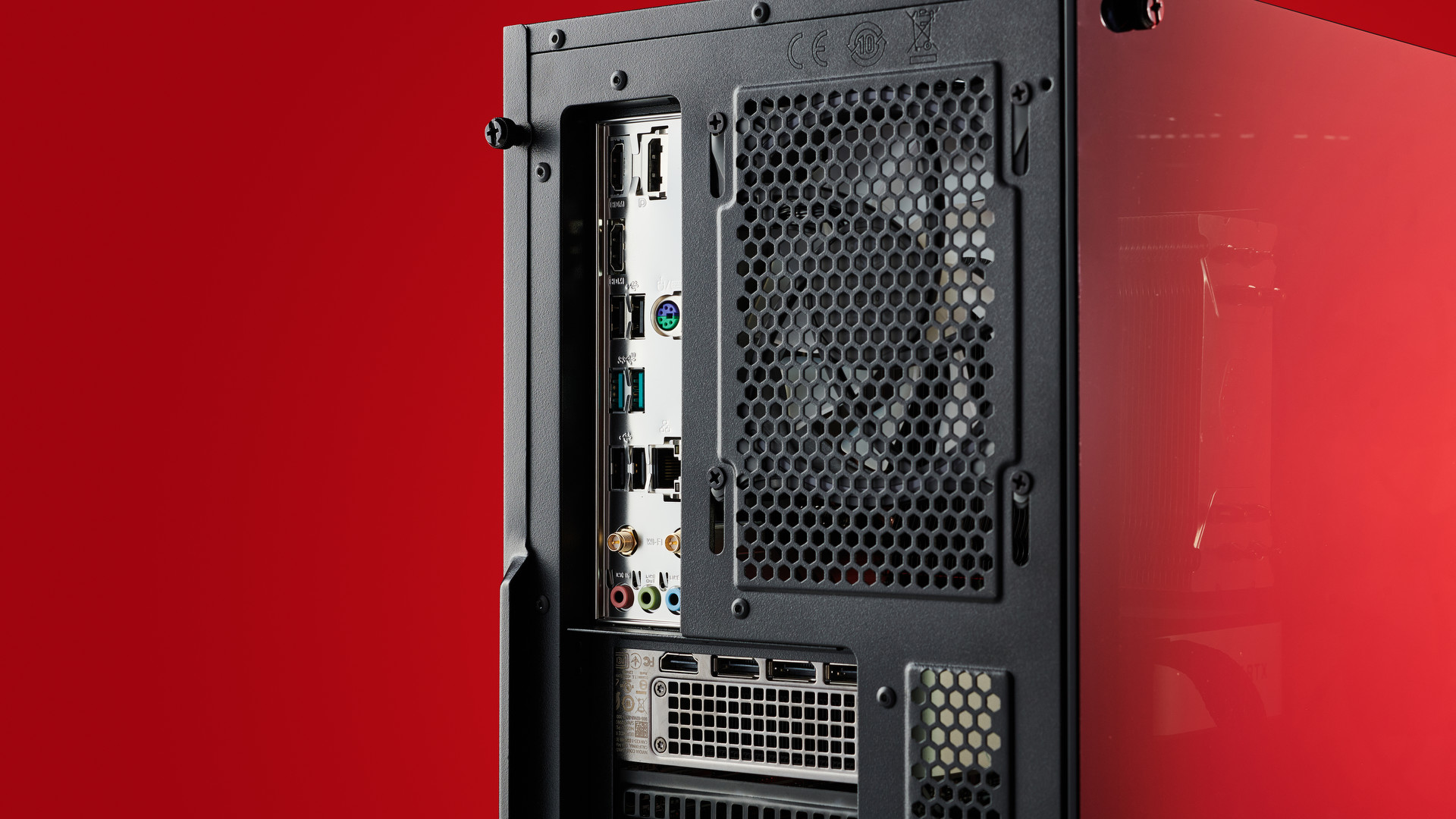
This is a capable gaming system then, although it's a shame about that Kingston NV1 SSD, which has peak read/write speeds of just 2,100MB/s and 1,700MB/s. It's better than a SATA drive, sure, but it's only half as fast as a decent PCIe 3.0 SSD and nearly a quarter the speed of a high-end PCIe 4.0 SSD. 500GB is pretty tight too—we struggled to get all of our benchmark suite on here in one go.
You can upgrade this to a 1TB drive at the time of purchase for an extra $30, which doesn't seem bad, but it'll still be a slow drive. You can upgrade this yourself easily enough down the road, and there's plenty of room to do so, but for this much cash, I'd prefer to not have to worry about space.
It's worth highlighting that Build Redux has gone for an air cooler for the Core i5 12400F, specifically the Cooler Master Hyper 212 Evo. This means the chip can get a little warmer than some machines do under load, but not to dangerous levels, and thanks to the overall airflow through the machine, it's never a problem. The cable management here is well done too, which helps on this front.
Overall, the Build Redux 'Good' is a capable gaming machine representing strong value for money. The component selection is mostly spot on and SSD aside, this should last you a good few years of gaming without worries.
The name may be basic, but this is a quality build that focuses on gaming first and foremost. Shame a bit more attention didn't go into the storage though.
Alan has been writing about PC tech since before 3D graphics cards existed, and still vividly recalls having to fight with MS-DOS just to get games to load. He fondly remembers the killer combo of a Matrox Millenium and 3dfx Voodoo, and seeing Lara Croft in 3D for the first time. He's very glad hardware has advanced as much as it has though, and is particularly happy when putting the latest M.2 NVMe SSDs, AMD processors, and laptops through their paces. He has a long-lasting Magic: The Gathering obsession but limits this to MTG Arena these days.
